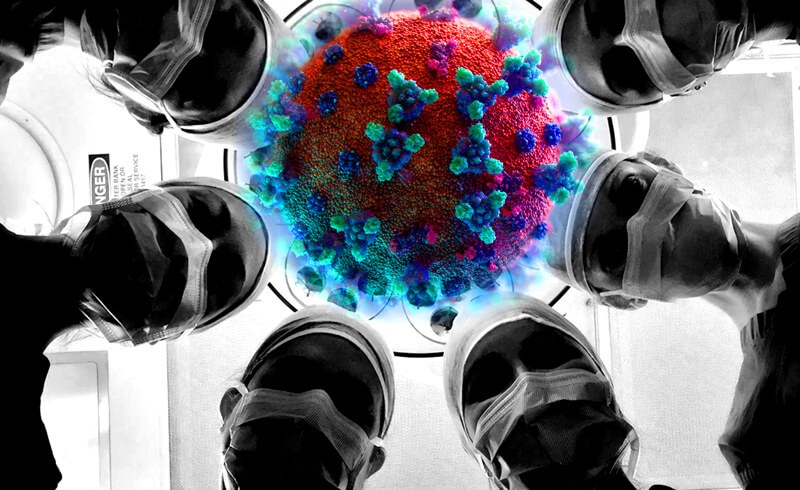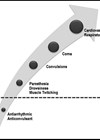Introduction
Devastating pandemics have occurred throughout human history, including the Antonine Plague (AD 165-180), the Justinian Plague (AD 514-549), the Black Death (AD 1347-1351) and the Spanish Flu (AD 1918-1919). The COVID-19 pandemic began in Wuhan, China in December 2019, then spread globally, killing over five million people worldwide. Although the severity of the disease has been modified by the vaccination programme, many are still struggling from the effects of the virus, to this day.
The pandemic has adversely affected global healthcare, with some countries initiating strict lockdowns [1-3], whilst others maintained their economy, preserved the business community yet managed to control of the spread of the virus [4].
The purpose of this current paper was to conduct an anonymous online survey of full members of the British Association of Aesthetic Plastic Surgeons (BAAPS), currently in private practice in the UK, to document what effect the impact of the three major lockdowns, which occurred in the UK during the pandemic, had on their aesthetic plastic surgery practice as well as on their health and wellbeing.
Following approval by BAAPS Council and in accordance with the principles of the Declaration of Helsinki, the survey was distributed by the BAAPS Head Office online via Survey MonkeyTM and was open for four weeks.
Results
There was a 21% response rate from the membership, 70% of whom worked both in the NHS and in private practice, ten percent had suffered from a covid infection and on average, each consultant normally spent 14 hours per week carrying out private work.
The vast majority (95%) used a national provider (such as the Nuffield Group or Spire Healthcare), 9% owned their own facilities and 16% also used private facilities provided by the NHS. Eighty-two percent of the private facilities, in which they practised, took on an NHS contract and almost 60% of these private entities ceased all private plastic surgery, including both outpatient clinics and operative procedures, yet 75% of the private facilities allowed other specialties to continue their normal private work. Eighty-three percent of those members owning a medispa reported a significant decrease in activity.
Overall, respondents estimated that 70% of their private practice and income was lost, though one third were able to continue with a very limited amount of personal injury and medico-legal work online.
With regard to the three UK lockdowns, 77% stated that the first lockdown (23 March – 1 June 2020) had the most impact on their aesthetic practice, 40% furloughed members of their staff and unfortunately 10% were forced to permanently release staff. Forty percent described an increase in the running costs of their practice and just over half received no financial support to offset their practice costs.
With regard to medical indemnity fees, 70% were unable to renegotiate these and this posed a significant problem, due to the severe financial impact imposed on their practices. Those members with insurance-based policies appeared to fare worse.
Of note, 21% of the BAAPS members who responded made the decision to retire from private practice due to the pandemic while 26% stated that it had a negative effect on their mental health and 37% on their physical health.
Almost two thirds found the regular online seminars run during the pandemic by BAAPS and the British Association of Plastic Reconstructive and Aesthetic Surgeons (BAPRAS) extremely helpful, both from an educational and social point of view.
During the pandemic, almost 70% had spent the extra time available carrying out research, participating in online teaching and spending more time with their family.
And finally, as a result of the pandemic, 70% had converted their private practice from being mainly paper based to an online / electronic format [5].

Discussion and conclusion
The global COVID-19 pandemic has significantly impacted all aspects of healthcare [1-4]. This present study specifically investigated its influence on the UK practice of elective aesthetic plastic surgery.
In the UK, unlike many other countries, the majority of plastic surgeons have both a private and an NHS practice. This current pandemic significantly impacted on their private work, although 42% reported an adverse effect on their NHS practice also, in that only emergency and oncological work was permitted.
The lockdowns had a major impact on those running a small business. Those plastic surgeons with only an income from private practice suffered a greater financial penalty than those with a dual income.
It is very apparent from this survey that many private institutions favoured the work of other specialties at the expense of aesthetic plastic surgery. The specialty was given an extremely low priority and this may influence more surgeons to consider owning their own autonomous clinical facilities, as happens in several other countries.
Given lack of access to theatre during the height of the pandemic, training in aesthetic plastic surgery became extremely difficult. As the nationally established hospital groups closed their doors, independent facilities had to do the same for aesthetic surgery patients, the only exception being oncological case work. BAAPS / BAPRAS support a three-month aesthetic surgery fellowship and throughout the country, senior trainees were unable to receive the experience needed to successfully complete this fellowship during the three lockdowns. Fellowships were postponed or extended until the eventual return of aesthetic surgery, starting in the larger independent institutions in London.
A significant concern of consultants during the tumultuous period related to financial outgoings, specifically professional indemnity cover. The fact that those covered by an insurance-based indemnity were unable to renegotiate their costs significantly impacted on their practice expenses, whereas those insured with the Medical Defence Union / Medical and Dental Defence Union Scotland fared much better. Although insurance-based indemnity schemes may be cheaper to purchase, they appear to be less responsive to prevailing economic conditions. Over the last five years, indemnity providers that specifically focus on aesthetic surgery cover have come to the fore. They are exclusively available to plastic surgeons and are owned and governed by the members. This adds to member confidence that if a similar event occurs in the future, they will have more control over their indemnity policy.
This study has also revealed the effect of the health implications of the pandemic on plastic surgeons. One in ten had been infected by COVID-19, however the hidden consequences such as its impact on the mental and physical health of BAAPS members, has never been documented before. The pandemic and its resultant economic consequences significantly impacted on both mental and physical health.
On a positive note, members made some life-changing judgments during the pandemic. Over 20% made the decision to retire from private work and many spent more time with their families. Another positive finding was the benefit members gained from the online teaching sessions held by our two professional societies and these sessions continue to be a source of continuing medical education for plastic surgeons. There was also a major shift from running a ‘paper-based’ practice, to one based on online / electronic methods [5].
In conclusion, this study has revealed the hidden effects of COVID-19, on both the health and income of aesthetic plastic surgeons currently practising in the UK. Many experienced a significant fall in their income, were forced to furlough or release members of their staff and had to cope with increased practice costs, while experiencing a 70% reduction in their income. Our specialty was seen as less important than others by those providing private facilities. Other specialties were allowed access to private resources during the pandemic, which were denied to aesthetic plastic surgeons. This is likely to be a major contributor to the trend we are seeing as aesthetic surgeons establish their own facilities where they have ultimate control.
References
1. Bregman DE, Cook T, Thorne C. Estimated National and Regional Impact of Covid 19 on Elective C Case Volume in Elective Plastic Surgery. Aesthet Surg J 2021;41:358-69.
2. Sankar TK, Nugent N, Patel N, et al. Preliminary Report of a National Audit of Aesthetic Surgery Practice in the United Kingdom during the Covid-19 Pandemic. Aesthet Surg J 2021;41:NP1134-6.
3. Singh P, Pirayesh A, Mosahebi A. Aesthetic Surgery during Covid-19. Aesthet Surg J 2020;40:NP566-8.
4. Montemurro P, Heden Per, Adams WP Jr, et al. Effects of Covid-19 on Plastic Surgery Practices and Medi-Spas in Different Countries. Aesthet Surg J 2020;40:N453-6.
5. Chen J, Chow A, Favadi D, et al. The Zoom Boom: How Video Calling Impacts Attitudes Towards Aesthetic Surgery in the Covid-19 Era. Aesthet Surg J 2021;41:NP2086-93.
Declaration of competing interests: None declared.
COMMENTS ARE WELCOME










